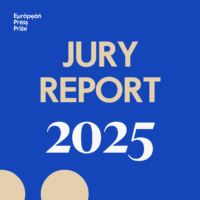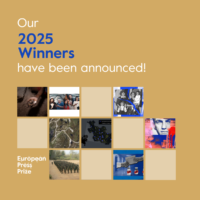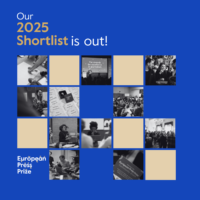Quality journalism speaks every language
Every story, no matter in what language it has been published, has a chance of winning a European Press Prize. In the past years, prizes have been awarded to both local journalists covering regional topics, as well as to big organisations covering an international theme. What do they have in common? Being European quality journalism – and quality journalism speaks every language.
By Jennifer Athanasiou-Prins, Operations European Press Prize
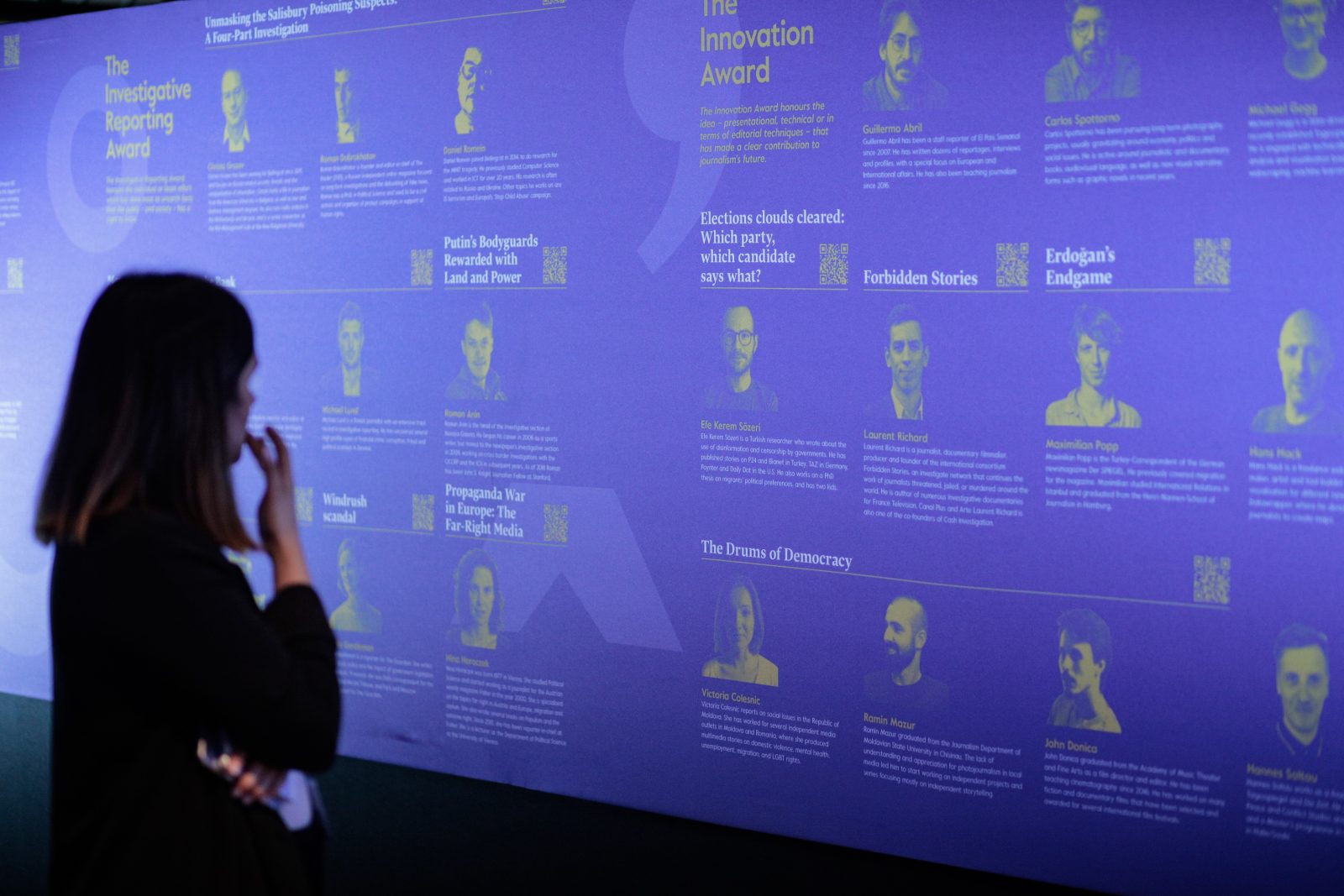
Yes, reading hundreds of European Press Prize entries in their original language and translating them into English is quite the logistical challenge and is a time and energy investment for all people involved. It requires coordination, hard work and funds – and above all many people. An engaged and tireless preparatory committee vouching for important work, translators working around the clock and judges making the toughest final choice. In spite of this time-consuming process, we will always allow all European languages to be submitted. Because – as a European prize – no language barrier should be the reason we miss out on the most important European stories out there.
Take the past three years of shortlisted European Press Prize projects as a sample: 68 percent of all nominated projects were originally published in languages other than English. Projects written in nineteen different European languages have gotten a European Press Prize nomination in these last three years; from Bosnian to French, from Norwegian to Turkish. Since the Prize was founded, projects published in twenty-five different languages have been nominated. If we limited the eligibility of projects to English publications only, we would have missed out on an incredibly big number of European projects and nominations. Europe has so many important stories to tell, we would never want to miss out on any of them.
“As a European Prize, no language barrier should be the reason we miss out on the most important European stories out there.”
Allowing journalists to enter work in their own language, is essential to our identity as a European foundation. It makes the prize accessible to those we might otherwise miss. It amplifies stories that deserve an even bigger stage. It connects an audience to information it might otherwise not get.
As our late founder Peter Preston said, “Journalism, this journalism, operates beyond a bubble culture. It crosses frontiers.” As a European organisation, we try our best to look beyond borders and bubbles. This is why, during our entry period, we reach out to as many European organisations and journalists as possible – in as many languages as we can. At the bureau, we currently speak nine different European languages which we use to spread the word about the Prize. And every year, a group of enthusiastic student ambassadors helps us search for important projects, journalists and organisations in their own European countries. This year, with their help, we reached an additional eleven European countries, learning from them as news consumers in their own countries.
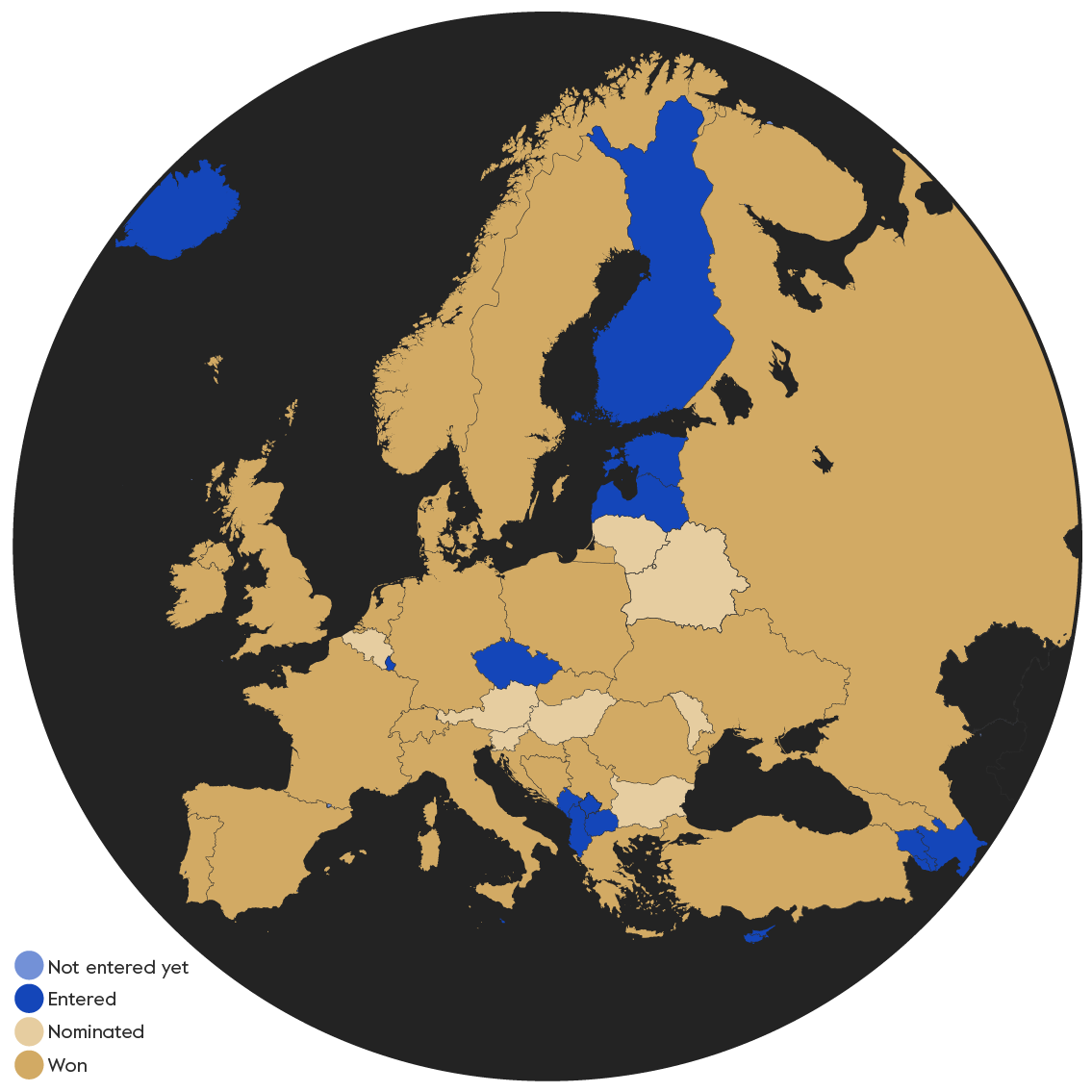
*Data updated to 2020
Still, we have a long way to go. Europe has a lot more to offer than our bubble reaches. So I hereby call upon all of you reading this: please help us burst our bubble. Translate and spread the word about the European Press Prize in your own country. Share with us the stories that should cross frontiers.
If you have questions or need help with your entry in any possible way, do not hesitate to reach out to us on [email protected]. If you feel that our outreach in your country, language or region is insufficient, please help us see this and change it. We strive to be as European as it gets.
And now, tell us your best stories – in any European language.
Share with us the stories that should cross frontiers.


